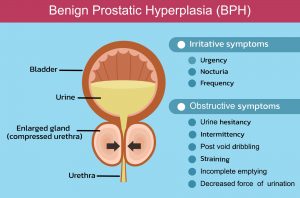WORDS DR RADHAMANI RAJAKUMAR
 FEATURED EXPERT FEATURED EXPERTDR RADHAMANI RAJAKUMAR Consultant Internal Medicine Physician and Endocrinologist Columbia Asia Hospital – Bukit Rimau |
Sobering Fact 1
MEN FACE NEARLY DOUBLE THE RISK OF DEVELOPING TYPE 2 DIABETES COMPARED TO WOMEN
Globally, an estimated 17.7 million more men than women grapple with diabetes mellitus.
This disparity extends to urological complications, with both genders equally susceptible once diabetes sets in. Over half of individuals with type 2 diabetes, regardless of gender, will experience urological complications.
Sobering Fact 2
UROLOGICAL DISEASES MARKEDLY INCREASED IN PREVALENCE WITH ADVANCING AGE & DURATION OF DIABETES
This marked increase is seen with advancing age of 50 years old and above and of diabetes duration of more than 10 years.
YOU MAY HAVE DIABETES & SHOULD CONSULT A DOCTOR IF YOU HAVE:
|
Sobering Fact 3
MORE THAN 50% OF MEN WITH DIABETES EXPERIENCE BLADDER DYSFUNCTION
They develop lower urinary tract symptoms (LUTS) such as urinary urgency, frequency, nocturia (waking up at night to urinate), and incontinence due to diminished bladder sensation and/or poor contractility.
They are also at higher risk of developing bladder infections, called cystitis, and bladder cancer.
In men, lower urinary tract symptoms are common age-related complaints that are often attributed to benign prostatic hyperplasia (BPH), especially after the age of 50.
Why do these men develop lower urinary tract symptoms?
The effect of diabetes on the development or presence of lower urinary tract symptoms and benign prostatic hyperplasia remains controversial.
Some studies suggested that diabetes increases prostate size consistent with benign prostatic hyperplasia.
Other studies reported conflicting results that diabetes increases the risk of lower urinary tract symptoms due to bladder dysfunction rather than an increase in prostate volume.
Sobering Fact 4
35% TO 45% OF MEN WITH DIABETES EXPERIENCE ERECTILE DYSFUNCTION
The prevalence of erectile dysfunction is 3 times more common compared to men without type 2 diabetes.
However, the treatment for erectile dysfunction depends on the cause. It’s important to discuss the problem with your doctor. Often the answers to a few simple questions will help to determine if the problem is physical or psychological.
Sobering Fact 5
MEN WITH DIABETES COMMONLY EXPERIENCE ERECTILE URINARY TRACT INFECTION
Urinary tract infection (UTI) can occur anywhere in the urinary tract, including the bladder, urethra, ureters, or kidneys.
It typically involves bacteria entering the urinary system, leading to symptoms such as frequent and painful urination, cloudy or bloody urine, and strong-smelling urine.
Sobering Fact 6
MEN WITH DIABETES CAN DEVELOP REPEATED CASES OF GENITAL THRUSH
Genital thrush is a fungal yeast infection linked to excess sugar in the blood getting passed in the urine.
Because yeast thrives on sugar, it is more likely to grow on the penis of a man with diabetes.
YOU MAY HAVE GENITAL THRUSH & SHOULD CONSULT A DOCTOR IF YOU HAVE:
|
Sobering Fact 7
UROLOGICAL COMPLICATIONS, IN PARTICULAR SEXUAL DYSFUNCTION, CAN LEAD TO PSYCHOSOCIAL DISORDERS AND RELATIONSHIP DISHARMONY
While these complications are generally not life-threatening, they pose significant mental distress and limitations in daily functioning, thus decreasing one’s quality of life.
Furthermore, men living with type 2 diabetes may experience stress, anxiety, or depression related to the daily demands of diabetes management, fear of complications, or concerns about the future.
These emotional struggles can affect mood, behaviour, and interpersonal interactions.
Sobering Fact 8
HEALTH SCREENINGS ARE KEY TO MANAGING DIABETES
Health screenings provide valuable insights and early detection of potential complications.
By undergoing regular health screenings, diabetic men can also actively manage their condition, prevent complications, and improve their overall quality of life by addressing potential health issues early and effectively.
BEST APPROACHES FOR DIABETES MANAGEMENT
|




